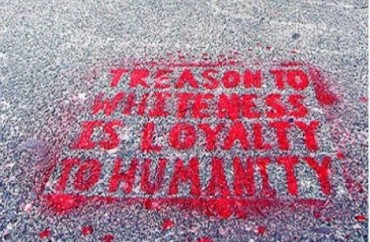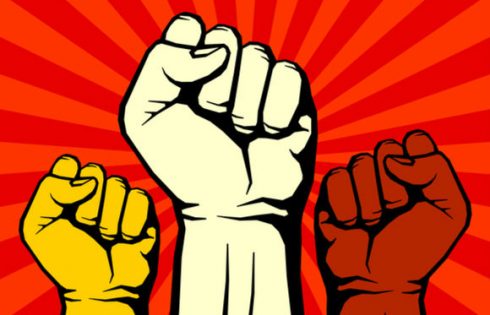
Imagine if The New York Times published a piece by a conservative academic in which the theme is the author teaching his white children that friendships with black people may not be possible.
Imagine, too, that part of the author’s reasoning was being worried about his children’s safety.
It wouldn’t happen, of course — that is, the Times actually publishing such a piece. But a similar article was written over five years ago, and the result was author John Derbyshire being ousted from National Review.
The Times would — and did — publish, however, Ekow N. Yankah’s op-ed which posits essentially the same thing as Derbyshire did … but in the racial reverse.
Titled “Can My Children Be Friends With White People?” the Yeshiva University law professor says the election of Donald Trump “has made it clear” that he needs to teach his sons the “lessons generations old” — that is, be cautious, be suspicious, be distrustful.
More succinctly, the question is “whether [his sons] can truly be friends with white people.”
History has provided little reason for people of color to trust white people in this way, and these recent months have put in the starkest relief the contempt with which the country measures the value of racial minorities. America is transfixed on the opioid epidemic among white Americans (who often get hooked after being overprescribed painkillers — while studies show that doctors underprescribe pain medication for African-Americans). But when black lives were struck by addiction, we cordoned off minority communities with the police and threw away an entire generation of black and Hispanic men. …
As against our gauzy national hopes, I will teach my boys to have profound doubts that friendship with white people is possible. When they ask, I will teach my sons that their beautiful hue is a fault line. Spare me platitudes of how we are all the same on the inside. I first have to keep my boys safe, and so I will teach them before the world shows them this particular brand of rending, violent, often fatal betrayal. …
Of course, the rise of this president has broken bonds on all sides. But for people of color the stakes are different. Imagining we can now be friends across this political line is asking us to ignore our safety and that of our children, to abandon personal regard and self-worth. Only white people can cordon off Mr. Trump’s political meaning, ignore the “unpleasantness” from a position of safety. His election and the year that has followed have fixed the awful thought in my mind too familiar to black Americans: “You can’t trust these people.”
Yankah, like innumerable academics since November 2016, rips President Trump and his supporters, claiming the latter “are practiced at purposeful blindness,” and that the president’s allies “have watched racial pornography, describing black America as pathological.”
White Trump voters and blacks can like each other, the prof concedes, but real friendship is doubtful.
“For African-Americans, race has become a proxy not just for politics but also for decency,” Yankah says. “White faces are swept together, ominous anxiety behind every chance encounter at the airport or smiling white cashier. If they are not clearly allies, they will seem unsafe to me.”
Indeed. Remember — racial stereotyping is perfectly appropriate if you’re of the “correct” hue … and political ideology.
MORE: Ohio State tells students only white people can be racist
MORE: ‘White people dying has generally worked’: Black prof draws outrage for remarks
IMAGE: Josh Parrish/Flickr
Like The College Fix on Facebook / Follow us on Twitter





Please join the conversation about our stories on Facebook, Twitter, Instagram, Reddit, MeWe, Rumble, Gab, Minds and Gettr.